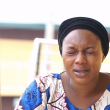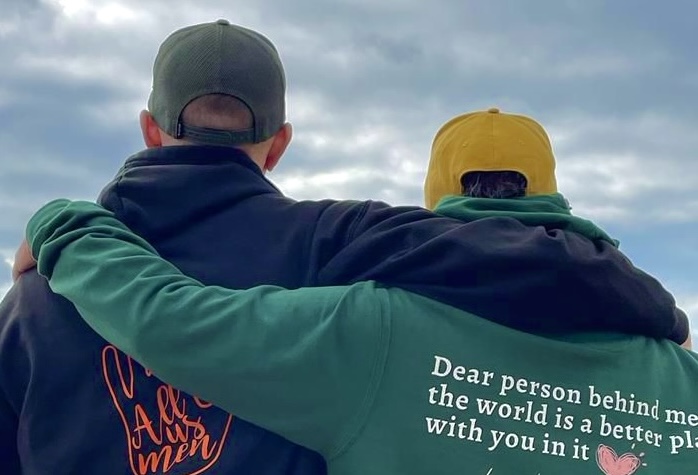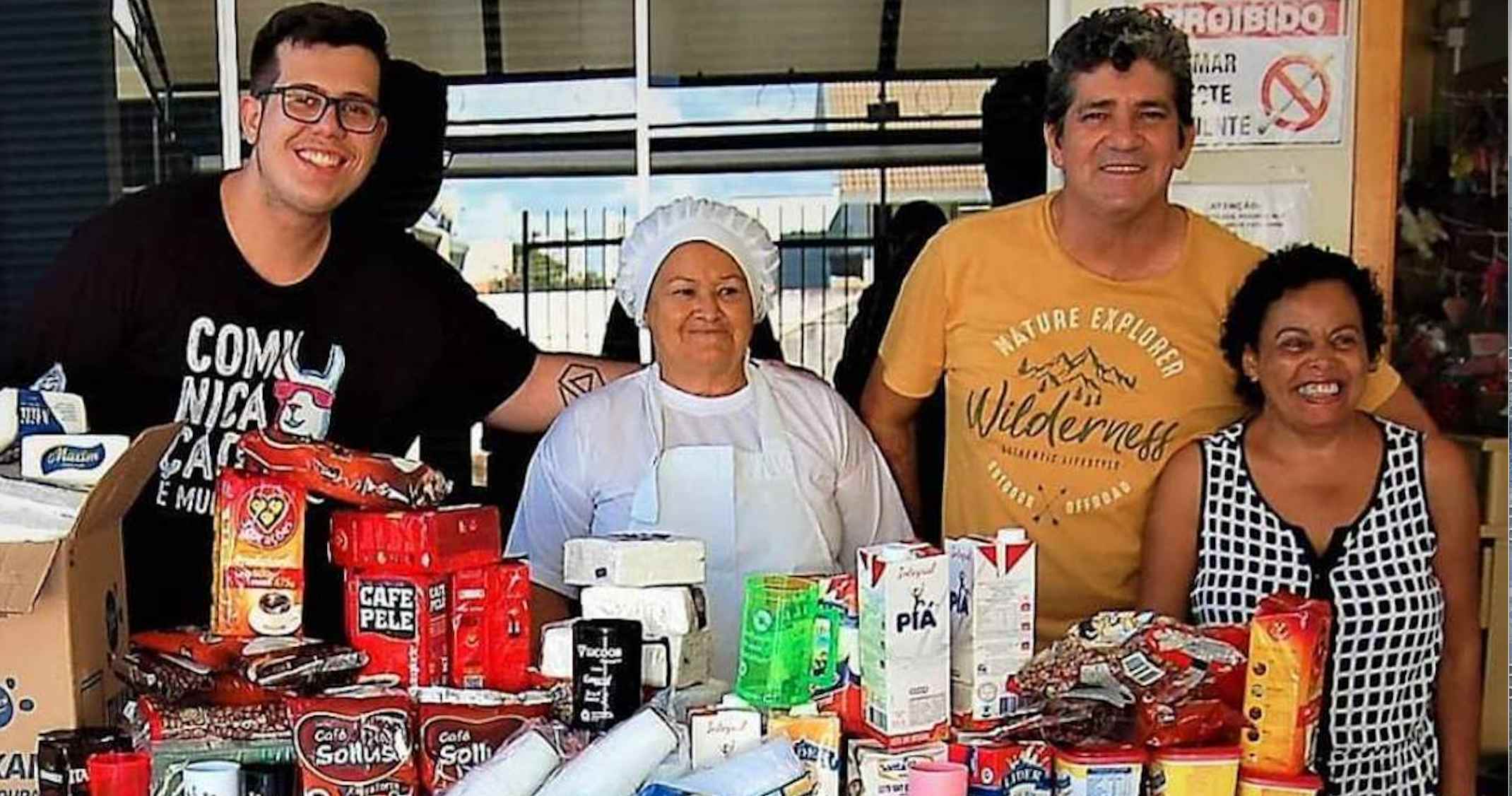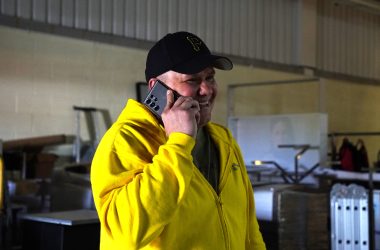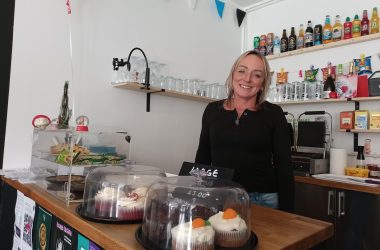Men are three times more likely to die by suicide than women. Yet, only 36 per cent of males are referred from the NHS for psychological therapy. This stark statistic begs the question: is enough being done to support men’s mental health?
“The one thing I struggled with the most was feeling so alone in my own thoughts,” said Russell Trent, reflecting on his past struggles with mental health. “I thought that nobody else could possibly feel this way. I didn’t know where to turn to, or who to speak to.”
Trent, who is 43, isn’t the only one to feel this way. A survey by The Priory estimates that 40 per cent of males in the UK would not speak to close friends, relatives, or even a medical professional about their mental health problems.
All Us Men is a men-only sharing circle located in Bournemouth. The group was founded in 2017 by Mahesh Hayward, and is now being facilitated by Johnny Howard. Howard said he was struggling with the loss of his stepfather when he first discovered the group. He described the space “a circle with other likeminded, non-judgmental men”.
The purpose of the group, Howard said, is not to offer advice but instead to listen to each other. “Sometimes people don’t necessarily want to hear what the answer is. They just want to be heard and they just want to feel like they’ve been heard,” he said.
After they attend a ‘sharing circle’, the attendees are invited to join a WhatsApp group so they can stay in touch with one another.
‘’They can reach out to the group through WhatsApp and just say, look, I need some support today,” Howard said. “The amount of people that would be there for others in a heartbeat is amazing. I never want is someone to come to our circle and go away thinking, oh man, I’ve got to wait another four weeks until the next one.’’
In the struggle for mental health faced by men, the digital connection that groups such as All Us Men provide is critical. Forty per cent of 18- to 34-year-olds avoided discussing their struggles out of a fear of coming across as less manly, according to a recent Movember survey. Brendan Maher, Movember’s global mental health director said: ‘’It is worrying that young men in the UK are still feeling under pressure to conform to age-old masculine stereotypes that stop them from talking about the things that keep them up at night.’’
Howard agrees. “I genuinely think it’s generational. It has been so ingrained into previous generations that men are weak for expressing emotion,” he said.
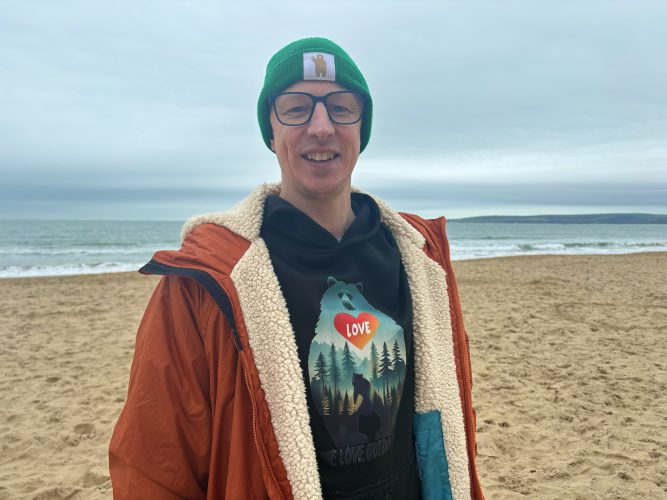
Harry Bahia, who is 41, discovered All Us Men when going through a break-up in 2021. He left his hometown and moved to Bournemouth and did not have any friends in the area.
“It was lonely and isolating… a really, really depressing period,” Bahia said.‘’I remember going on the first day, parking up and walking past it a few times and looking through the door and just seeing some older guys with tattoos. They looked like a bunch of reformed bikers. When I walked through the door, I was a bit cautious — am I in the right place?”
Bahia had never experienced a sharing circle before. “It’s a very meditative space,” he said. “People sat in a circle and meditated. So I just thought I’d do that as well. I remember feeling almost a little bit too safe. Like I could potentially cry.”
When he heard others share how they feel, he felt more comfortable to open up. “I think after the first person cried in that room, it felt okay,’’ Bahia said. “It’s almost like we’re mourning something. Because I think a lot of people come to these with problems rather than celebrations.”
Spending time in nature can benefit a person’s mental and physical well-being and this type of ecotherapy can help with anxiety and depression. As well as the indoor sharing circle and meditations, the All Us Men group also spends time outdoors. “We head down to the beach. We all jump in the sea together, whether that’s for two minutes or it’s for 10 minutes,” said Howard. “It’s almost like washing away…it’s almost like a cleansing.”
Trent, who is a regular attendee of All Us Men, was so inspired by the group that he decided to start his own sharing circle. In January 2024, Trent hosted his first Boars in the Woods circle in Ringwood. He describes this as a place for men to gather around a campfire to swap stories, chop wood and have hot drinks. Trent wanted to provide a safe space in nature for men to be ’vulnerable’ and form a ‘brotherhood.’
“I think there’s something quite instinctual about it, being able to just simply cut away from all of our technology and all of our distractions,” Trent said. “Giving yourself some space away from all of the other stuff in our lives creates a positive and calming mindset.”
As well as talking, attendees also whittle things out of wood, which can be a good way to get men talking. “If you give men something to do with their hands, they’ll open up a little bit easier,” Trent said.
Mark Fuller is the founder of Longbow Wilderness, a group for men in the security and frontline industries. The 37-year-old is a door supervisor trainer, and has a slightly different approach to tackling men’s mental health. “I wouldn’t be able to get a bunch of security guys to sit in a circle and talk about their feelings,” he said. “I’d have to make it more interactive.”
So Fuller plans to run classes that involve building Viking style houses as well as bushcraft, wilderness, and first-aid training.
“We are seen as the tough guys,” Fuller said. “We get abused and although we put on a brave face, a lot of stuff we take home with us. As soon as you drop your guard and you start admitting you need help, it’s that stigma, and you are the weak guy in the team.”
Fuller lost one of his team members recently. “He hung himself. He was 21 years old. We tried to help,” Fuller said. “I’m trying to understand on how we can help prevent it. I think just, just getting guys in the woods once a week or once a month, I think that would make a massive difference.”
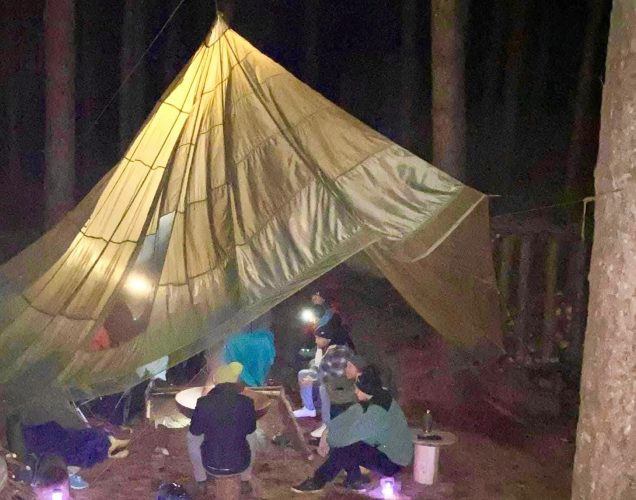
Although women are more likely than males to attempt suicide or receive a mental health diagnosis, such as depression, men account for around three-quarters of all suicide deaths in the UK. Male support groups such as All Us Men could help to reduce those figures.
Bahia said that he felt “terrified” when he thought about how different his life would have been without the group. “I think the support is important because if you’ve got no one to talk to, it will just stay within you, and that’s dangerous,” he said.
Howard is of the same opinion. “Whether you’re male, female, non-binary or from the LGBTQ+ community, there are so many different groups out there that are putting mental health at the forefront,” he said. “Hearing others’ stories will make you feel less alone.”
If you have been affected by anything in this story, or if you need mental health support The Samaritans has a free 24-hour hotline on 116 123




